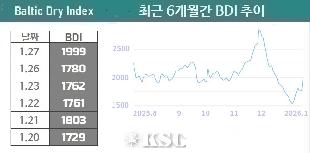2021-09-13 09:06
논단/ 2015년 영국보험법과 해상보험에서의 고지의무와 워런티 법리의 변화
정해덕 법무법인 화우 변호사(법학박사)
2015년 영국보험법의 제정, 시행에 따라 영국해상보험법상의 고지의무와 워런티에 관한 법리도 수정, 변경되었으므로 이에 대한 검토, 연구가 요망됨
다. 2015년 영국보험법 관련 규정
2015년 영국보험법 제8조와 부록 1의 규정을 살펴보면 다음과 같다.
8 Remedies for breach
(1)The insurer has a remedy against the insured for a breach of the duty of fair presentation only if the insurer shows that, but for the breach, the insurer (a)would not have entered into the contract of insurance at all, or (b)would have done so only on different terms.
(2)The remedies are set out in Schedule 1.
(3)A breach for which the insurer has a remedy against the insured is referred to in this Act as a “qualifying breach”.
(4)A qualifying breach is either (a)deliberate or reckless, or (b)neither deliberate nor reckless.
(5)A qualifying breach is deliberate or reckless if the insured (a)knew that it was in breach of the duty of fair presentation, or (b)did not care whether or not it was in breach of that duty.
(6)It is for the insurer to show that a qualifying breach was deliberate or reckless.
SCHEDULE 1
Insurers’ remedies for qualifying breaches
This schedule has no associated Explanatory Notes
PART 1 Contracts
General
1 This Part of this Schedule applies to qualifying breaches of the duty of fair presentation in relation to non-consumer insurance contracts
Deliberate or reckless breaches
2 If a qualifying breach was deliberate or reckless, the insurer (a)may avoid the contract and refuse all claims, and (b)need not return any of the premiums paid.
Other breaches
3 Paragraphs 4 to 6 apply if a qualifying breach was neither deliberate nor reckless.
4 If, in the absence of the qualifying breach, the insurer would not have entered into the contract on any terms, the insurer may avoid the contract and refuse all claims, but must in that event return the premiums paid.
5 If the insurer would have entered into the contract, but on different terms (other than terms relating to the premium), the contract is to be treated as if it had been entered into on those different terms if the insurer so requires.
6 (1)In addition, if the insurer would have entered into the contract (whether the terms relating to matters other than the premium would have been the same or different), but would have charged a higher premium, the insurer may reduce proportionately the amount to be paid on a claim.
(2)In sub-paragraph (1), “reduce proportionately” means that the insurer need pay on the claim only X% of what it would otherwise have been under an obligation to pay under the terms of the contract (or, if applicable, under the different terms provided for by virtue of paragraph 5), where
PART 2 Variations
General
7 This Part of this Schedule applies to qualifying breaches of the duty of fair presentation in relation to variations to non-consumer insurance contracts.
Deliberate or reckless breaches
8 If a qualifying breach was deliberate or reckless, the insurer
(a)may by notice to the insured treat the contract as having been terminated with effect from the time when the variation was made, and
(b)need not return any of the premiums paid.
Other breaches
9 (1)This paragraph applies if (a)a qualifying breach was neither deliberate nor reckless, and (b)the total premium was increased or not changed as a result of the variation.
(2)If, in the absence of the qualifying breach, the insurer would not have agreed to the variation on any terms, the insurer may treat the contract as if the variation was never made, but must in that event return any extra premium paid.
(3)If sub-paragraph (2) does not apply (a)if the insurer would have agreed to the variation on different terms (other than terms relating to the premium), the variation is to be treated as if it had been entered into on those different terms if the insurer so requires, and (b)paragraph 11 also applies if (in the case of an increased premium) the insurer would have increased the premium by more than it did, or (in the case of an unchanged premium) the insurer would have increased the premium.
10 (1)This paragraph applies if (a)a qualifying breach was neither deliberate nor reckless, and (b)the total premium was reduced as a result of the variation.
(2)If, in the absence of the qualifying breach, the insurer would not have agreed to the variation on any terms, the insurer may treat the contract as if the variation was never made, and paragraph 11 also applies.
(3)If sub-paragraph (2) does not apply (a)if the insurer would have agreed to the variation on different terms (other than terms relating to the premium), the variation is to be treated as if it had been entered into on those different terms if the insurer so requires, and (b)paragraph 11 also applies if the insurer would have increased the premium, would not have reduced the premium, or would have reduced it by less than it did.
Proportionate reduction
11 (1)If this paragraph applies, the insurer may reduce proportionately the amount to be paid on a claim arising out of events after the variation.
(2)In sub-paragraph (1), “reduce proportionately” means that the insurer need pay on the claim only Y% of what it would otherwise have been under an obligation to pay under the terms of the contract (whether on the original terms, or as varied, or under the different terms provided for by virtue of paragraph 9(3)(a) or 10(3)(a), as the case may be), where
(3)In the formula in sub-paragraph (2), “P” (a)in a paragraph 9(3)(b) case, is the total premium the insurer would have charged, (b)in a paragraph 10(2) case, is the original premium, (c)in a paragraph 10(3)(b) case, is the original premium if the insurer would not have changed it, and otherwise the increased or (as the case may be) reduced total premium the insurer would have charged.
PART 3 Supplementary
Relationship with section 84 of the Marine Insurance Act 1906
12 Section 84 of the Marine Insurance Act 1906 (return of premium for failure of consideration) is to be read subject to the provisions of this Schedule in relation to contracts of marine insurance which are non-consumer insurance contracts.
<계속>
다. 2015년 영국보험법 관련 규정
2015년 영국보험법 제8조와 부록 1의 규정을 살펴보면 다음과 같다.
8 Remedies for breach
(1)The insurer has a remedy against the insured for a breach of the duty of fair presentation only if the insurer shows that, but for the breach, the insurer (a)would not have entered into the contract of insurance at all, or (b)would have done so only on different terms.
(2)The remedies are set out in Schedule 1.
(3)A breach for which the insurer has a remedy against the insured is referred to in this Act as a “qualifying breach”.
(4)A qualifying breach is either (a)deliberate or reckless, or (b)neither deliberate nor reckless.
(5)A qualifying breach is deliberate or reckless if the insured (a)knew that it was in breach of the duty of fair presentation, or (b)did not care whether or not it was in breach of that duty.
(6)It is for the insurer to show that a qualifying breach was deliberate or reckless.
SCHEDULE 1
Insurers’ remedies for qualifying breaches
This schedule has no associated Explanatory Notes
PART 1 Contracts
General
1 This Part of this Schedule applies to qualifying breaches of the duty of fair presentation in relation to non-consumer insurance contracts
Deliberate or reckless breaches
2 If a qualifying breach was deliberate or reckless, the insurer (a)may avoid the contract and refuse all claims, and (b)need not return any of the premiums paid.
Other breaches
3 Paragraphs 4 to 6 apply if a qualifying breach was neither deliberate nor reckless.
4 If, in the absence of the qualifying breach, the insurer would not have entered into the contract on any terms, the insurer may avoid the contract and refuse all claims, but must in that event return the premiums paid.
5 If the insurer would have entered into the contract, but on different terms (other than terms relating to the premium), the contract is to be treated as if it had been entered into on those different terms if the insurer so requires.
6 (1)In addition, if the insurer would have entered into the contract (whether the terms relating to matters other than the premium would have been the same or different), but would have charged a higher premium, the insurer may reduce proportionately the amount to be paid on a claim.
(2)In sub-paragraph (1), “reduce proportionately” means that the insurer need pay on the claim only X% of what it would otherwise have been under an obligation to pay under the terms of the contract (or, if applicable, under the different terms provided for by virtue of paragraph 5), where
PART 2 Variations
General
7 This Part of this Schedule applies to qualifying breaches of the duty of fair presentation in relation to variations to non-consumer insurance contracts.
Deliberate or reckless breaches
8 If a qualifying breach was deliberate or reckless, the insurer
(a)may by notice to the insured treat the contract as having been terminated with effect from the time when the variation was made, and
(b)need not return any of the premiums paid.
Other breaches
9 (1)This paragraph applies if (a)a qualifying breach was neither deliberate nor reckless, and (b)the total premium was increased or not changed as a result of the variation.
(2)If, in the absence of the qualifying breach, the insurer would not have agreed to the variation on any terms, the insurer may treat the contract as if the variation was never made, but must in that event return any extra premium paid.
(3)If sub-paragraph (2) does not apply (a)if the insurer would have agreed to the variation on different terms (other than terms relating to the premium), the variation is to be treated as if it had been entered into on those different terms if the insurer so requires, and (b)paragraph 11 also applies if (in the case of an increased premium) the insurer would have increased the premium by more than it did, or (in the case of an unchanged premium) the insurer would have increased the premium.
10 (1)This paragraph applies if (a)a qualifying breach was neither deliberate nor reckless, and (b)the total premium was reduced as a result of the variation.
(2)If, in the absence of the qualifying breach, the insurer would not have agreed to the variation on any terms, the insurer may treat the contract as if the variation was never made, and paragraph 11 also applies.
(3)If sub-paragraph (2) does not apply (a)if the insurer would have agreed to the variation on different terms (other than terms relating to the premium), the variation is to be treated as if it had been entered into on those different terms if the insurer so requires, and (b)paragraph 11 also applies if the insurer would have increased the premium, would not have reduced the premium, or would have reduced it by less than it did.
Proportionate reduction
11 (1)If this paragraph applies, the insurer may reduce proportionately the amount to be paid on a claim arising out of events after the variation.
(2)In sub-paragraph (1), “reduce proportionately” means that the insurer need pay on the claim only Y% of what it would otherwise have been under an obligation to pay under the terms of the contract (whether on the original terms, or as varied, or under the different terms provided for by virtue of paragraph 9(3)(a) or 10(3)(a), as the case may be), where
(3)In the formula in sub-paragraph (2), “P” (a)in a paragraph 9(3)(b) case, is the total premium the insurer would have charged, (b)in a paragraph 10(2) case, is the original premium, (c)in a paragraph 10(3)(b) case, is the original premium if the insurer would not have changed it, and otherwise the increased or (as the case may be) reduced total premium the insurer would have charged.
PART 3 Supplementary
Relationship with section 84 of the Marine Insurance Act 1906
12 Section 84 of the Marine Insurance Act 1906 (return of premium for failure of consideration) is to be read subject to the provisions of this Schedule in relation to contracts of marine insurance which are non-consumer insurance contracts.
<계속>
< 코리아쉬핑가제트 >
많이 본 기사
- 해운업계, 양대 해양대학에 100억 지원북미항로/ 중국발 수요 급감…선사들 “운임회복 쉽지 않네”동남아항로/ ‘중국 철강 수출제한 여파’ 새해 운임 내림세한중항로/ 2년 연속 물동량 신기록…지난해 357만TEU 달성한러항로/ 러 연휴로 연초 물동량 부진美 철도기업 합병 불발…규제당국 신청서 불승인한일항로/ 공급 축소해도 화물 채우기 쉽지 않아중동항로/ 중국발 물량 꺾이자 한달새 운임 20%↓중남미항로/ ‘선사들 집화경쟁 후끈’ 운임 3년만에 1200弗 붕괴HMM, 특수화물 온라인예약 실시…“운송절차 간소화”
- 태웅로직스, 30주년 맞아 ‘100년 기업’ 선언中 양푸항, 지난해 ‘컨’ 처리량 330만TEU…전년比 65%↑KMI, 동서대와 해운항만 미래인재 양성 맞손선박들의 피항처 ‘거문도’ 올해의 섬 지정아프리카항로/ 물동량 호성적에도 운임 약세 이어져“어렵고 까다로운 위험물 물류 함께 고민해요”물동량 4년 연속 신기록 전망에도 운임 흐름 불투명호주항로/ 춘절 특수 없다…해상운임 약세로 전환靑 해수비서관에 이현 前 해수부 장관 정책보좌관구주항로/ 춘절특수 실종…공급조절·운임회복으로 극복
스케줄 많이 검색한 항구




































































0/250
확인